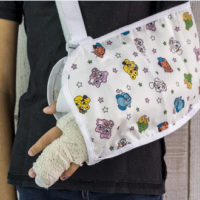When Is a Child Legally Responsible for His Injuries?

In any personal injury lawsuit, the defendant may attempt to shift blame to the plaintiff by presenting evidence of the latter’s “comparative negligence.” But what if the plaintiff is a minor? How do Tennessee courts assess the comparative negligence of a child?
Applying the “Rule of Sevens”
The answer is a legal principle known as the “Rule of Sevens.” Basically, this is a sliding scale for establishing a minor’s capacity to commit a negligent act:
- A child under the age of 7 has “no capacity” for negligence as a matter of law;
- A child between the ages of 7 and 14 is presumed to have no capacity for negligence, but this presumption is “rebuttable”; and
- A child between the ages of 14 and 18 is presumed to have the capacity for negligence, but again, this presumption is rebuttable.
The age of the child is therefore critical in determining his or her comparative negligence. A recent Tennessee appeals court decision offers a helpful illustration. The plaintiff in this case was a 13-year-old boy attending a summer school operated by the defendant.
On the final day of summer school, the plaintiff and his classmates were told to report the school’s gymnasium. They were being punished for a prank committed the earlier day. As part of the punishment, the plaintiff had to mop a wet bathroom and then pick up trash in the gym’s bleachers.
The plaintiff and the other boys used the actual bleacher seats as steps. The gym teacher later testified that he repeatedly told the boys not to do this, but they refused to listen. At some point, the plaintiff slipped and fell from the bleachers. He suffered a serious leg fracture that required surgery.
The plaintiff and his parents subsequently sued the defendant for negligence. The case was tried before a judge without a jury. The judge determined the plaintiff was 100 percent responsible for his accident. Although as a 13-year-old, the Rule of Sevens presumed the plaintiff lacked capacity for negligence, the judge said the defendant rebutted this presumption based on evidence the gym teacher warned the plaintiff “about not using the bleacher seats as steps” and therefore “he knew that such an action could cause injury.”
The Tennessee Court of Appeals upheld the trial judge’s decision. Rejecting the parents’ claim that the plaintiff “was immature for his age and lacked the capacity of an average 13-year-old,” the Court of Appeals said the evidence at trial established the plaintiff knew about the risks of using the bleacher seats as steps and that overall he was a “well-behaved” child who was smart enough to understand the consequences of his actions.
Get Help From a Tennessee Personal Injury Lawyer
Comparative negligence is just one of many complex legal issues that arise in the context of a personal injury lawsuit. If you or your child are hurt due to a third party’s negligence, it is important you work with an experienced Knoxville personal injury attorney who can advise you on these issues. Contact the offices of Fox, Farley, Willis & Burnette, Attorneys at Law, if you need to speak with a qualified lawyer today.
Source: tncourts.gov/sites/default/files/crockettdonald.opn_.pdf











